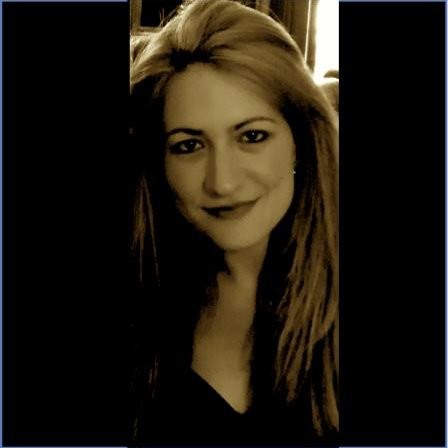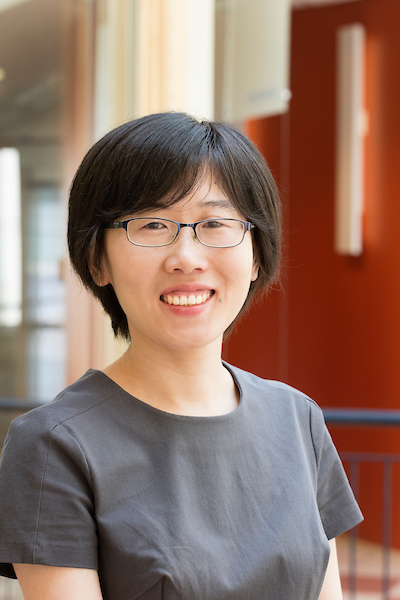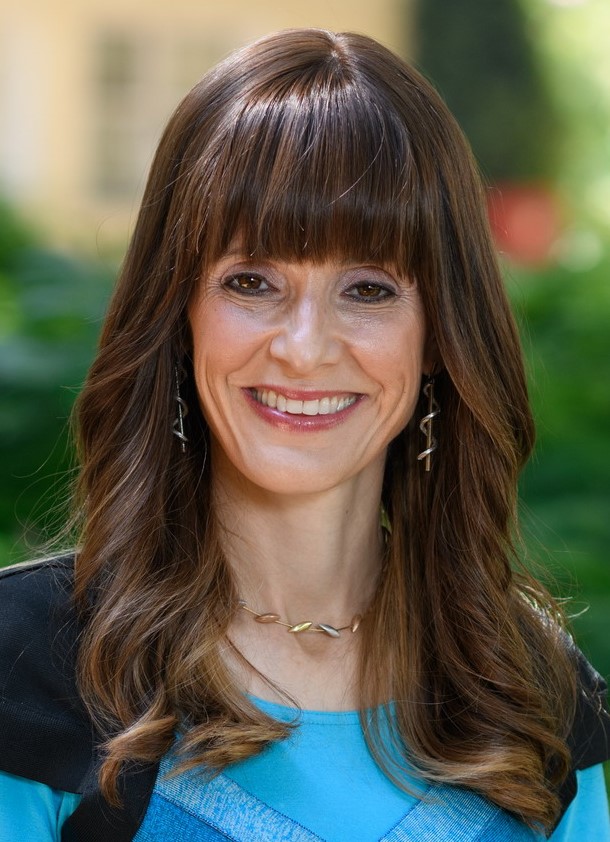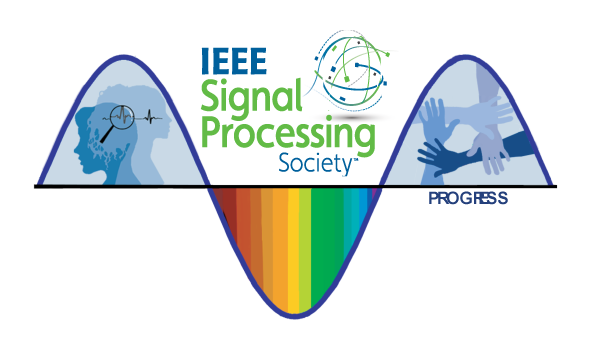Workshop Speakers | ICASSP 2023

Vasileia Filidou
Diversity and Inclusion in Engineering
Abstract
Careers in science, engineering and other technical fields offer opportunities to advance knowledge, contribute to the well-being of communities, and support the security, prosperity, and health of nations. Women, minority groups and people with disabilities do not pursue or persist in these careers, as they face barriers, including: implicit and explicit bias; sexual harassment; unequal access to funding and resources; pay inequity; higher teaching and advising loads; and fewer speaking invitations, among others. Here, we are going to discuss in more detail these barriers, explain why diversity in math-intensive fields is essential for accelerating innovation and refer to specific biases observed in signal processing research. We will present the European perspective and the discuss the specific measures adopted across Member States that aim to assist women and other groups thrive in those fields.
Biography
Vasileia Filidou is the Head of Proposal Management at Athena Research and Innovation Centre, Greece. She holds a Ph.D. from Oxford University in Quantum Computing, where she researched nuclear spin entanglement using Photoexcited triplet states. She holds a BSc in Physics and an MSc in Nonlinear Optics. She carried out research in the above scientific fields, at the University of Oxford, University College London and University of Patras, and taught various courses to Undergraduate Students. In 2013 she completed a Masters programme in European Studies and Policy Making at the University Catholique in Louvain (UCLouvain), Belgium, and have been working in proposal management ever since. She has submitted proposals on behalf of University College London (UCL), Thompson Reuters London, UK, and Crowdhelix. She is a member of the Gender Equality committee at Athena RC, and worked as a Female Welfare Officer at St Peters College, University of Oxford.

Yuejie Chi
Scaling and Scalability: Accelerating Ill-conditioned Low-rank Estimation via Scaled Gradient Descent
Abstract
Many problems encountered in sensing and imaging can be formulated as estimating a low-rank object from incomplete, and possibly corrupted, linear measurements; prominent examples include matrix completion and tensor completion. Through the lens of matrix and tensor factorization, one of the most popular approaches is to employ simple iterative algorithms such as gradient descent to recover the low-rank factors directly, which allow for small memory and computation footprints. However, the convergence rate of gradient descent depends linearly, and sometimes even quadratically, on the condition number of the low-rank object, and therefore, slows down painstakingly when the problem is ill-conditioned. This talk introduces an algorithmic approach, dubbed scaled gradient descent (ScaledGD), that provably converges linearly at a constant rate independent of the condition number of the low-rank object, while maintaining the low per-iteration cost of gradient descent. In addition, ScaledGD continues to admit fast global convergence from a small random initialization when the rank is over-specified, confirming the generalization capability of ScaledGD in learning overparameterized models. In total, ScaledGD highlights the power of appropriate preconditioning in accelerating nonconvex statistical estimation and learning, where the iteration-varying preconditioners promote desirable invariance properties of the trajectory with respect to the symmetry in low-rank factorization.
Speaker Biography
Yuejie Chi (S’09—M’12—SM’17—F’23) received Ph.D. and M.A. in Electrical Engineering from Princeton University in 2012 and 2009, and B.E. (Hon.) in Electrical Engineering from Tsinghua University, Beijing, China, in 2007. She is currently the Sense of Wonder Group Endowed Professor of Electrical and Computer Engineering in AI Systems at Carnegie Mellon University, with courtesy appointments in the Machine Learning Department and CyLab. Her research interests lie in the theoretical and algorithmic foundations of data science, signal processing, machine learning and inverse problems, with applications in sensing, imaging, decision making, and societal systems, broadly defined. Among others, she is a recipient of Presidential Early Career Award for Scientists and Engineers (PECASE), the inaugural IEEE Signal Processing Society Early Career Technical Achievement Award for contributions to high-dimensional structured signal processing, IEEE Signal Processing Society Young Author Best Paper Award. She was named a Goldsmith Lecturer by IEEE Information Theory Society, and a Distinguished Lecturer by IEEE Signal Processing Society. She currently serves or served as an Associate Editor for IEEE Trans. on Information Theory, IEEE Trans. on Signal Processing, IEEE Trans. on Pattern Recognition and Machine Intelligence, Information and Inference: A Journal of the IMA, and SIAM Journal on Mathematics of Data Science.

Yonina Eldar
Model Based Deep Learning: Applications to Imaging and Communications
Abstract
Deep neural networks provide unprecedented performance gains in many real-world problems in signal and image processing. Despite these gains, the future development and practical deployment of deep networks are hindered by their black-box nature, i.e., a lack of interpretability and the need for very large training sets. On the other hand, signal processing and communications have traditionally relied on classical statistical modeling techniques that utilize mathematical formulations representing the underlying physics, prior information and additional domain knowledge. Simple classical models are useful but sensitive to inaccuracies and may lead to poor performance when real systems display complex or dynamic behavior. Here we introduce various approaches to model based learning which merge parametric models with optimization tools and classical algorithms leading to efficient, interpretable networks from reasonably sized training sets. We will consider examples of such model-based deep networks to image deblurring, image separation, super resolution in ultrasound and microscopy, efficient communication systems, and finally we will see how model-based methods can also be used for efficient diagnosis of COVID19 using X-ray and ultrasound.
Biography
Yonina Eldar is a Professor in the Department of Mathematics and Computer Science, Weizmann Institute of Science, Rehovot, Israel where she heads the center for Biomedical Engineering and Signal Processing and holds the Dorothy and Patrick Gorman Professorial Chair. She is also a Visiting Professor at MIT, a Visiting Scientist at the Broad Institute, and an Adjunct Professor at Duke University and was a Visiting Professor at Stanford. She is a member of the Israel Academy of Sciences and Humanities, an IEEE Fellow and a EURASIP Fellow.
She received the B.Sc. degree in physics and the B.Sc. degree in electrical engineering from Tel-Aviv University, and the Ph.D. degree in electrical engineering and computer science from MIT, in 2002. She has received many awards for excellence in research and teaching, including the IEEE Signal Processing Society Technical Achievement Award (2013), the IEEE/AESS Fred Nathanson Memorial Radar Award (2014) and the IEEE Kiyo Tomiyasu Award (2016). She was a Horev Fellow of the Leaders in Science and Technology program at the Technion and an Alon Fellow. She received the Michael Bruno Memorial Award from the Rothschild Foundation, the Weizmann Prize for Exact Sciences, the Wolf Foundation Krill Prize for Excellence in Scientific Research, the Henry Taub Prize for Excellence in Research (twice), the Hershel Rich Innovation Award (three times), and the Award for Women with Distinguished Contributions. She received several best paper awards and best demo awards together with her research students and colleagues, was selected as one of the 50 most influential women in Israel, and was a member of the Israel Committee for Higher Education. She is the Editor in Chief of Foundations and Trends in Signal Processing, a member of several IEEE Technical Committees and Award Committees, and heads the Committee for Promoting Gender Fairness in Higher Education Institutions in Israel.

